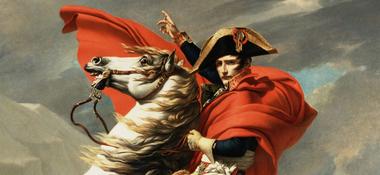
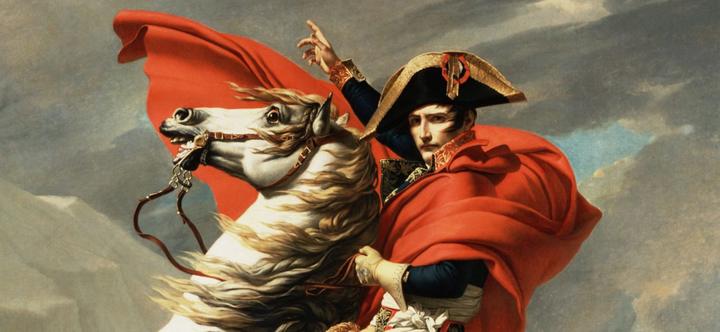
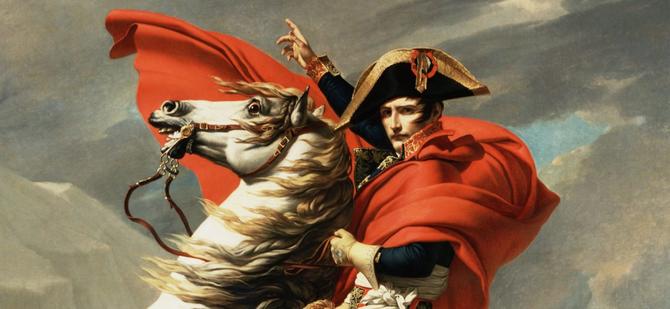
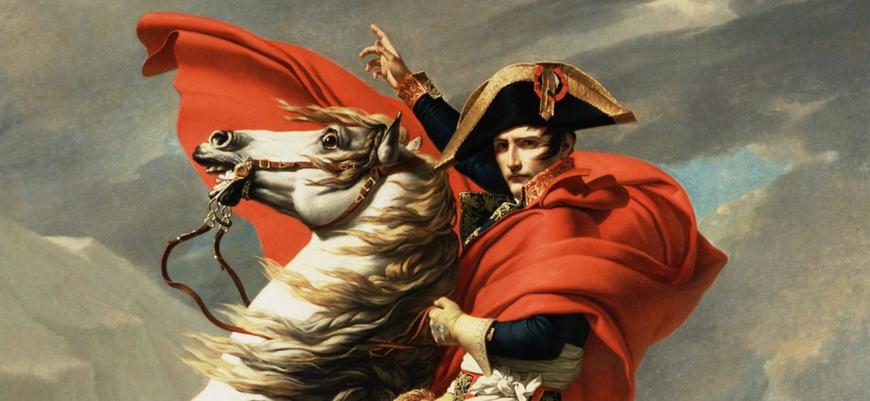
In this work, the author tries to analyze the major goals and objectives pursued by the Emperor of France Napoleon Bonaparte during his military campaign in Russia. He finds out why it failed: it was Bonaparte's mistake or his campaign was doomed to failure.
The question of Napoleon’s political goals and military-strategic objectives that he had followed during his campaign in Russia, is being studied for a long time (almost from 1812), but it still wasn't a clear answer. The authors of the work find out one of the reasons for this situation. It is the problem of Napoleon’s personality. According to his own words the character of Napoleon was impatient and uneasy from his childhood, he didn’t like anything, he was inclined to quarrels and fights, he was not afraid of anyone but everyone was afraid of him and as a result he grew up in a grim and irritable man (Adams, 2006). So Napoleon Bonaparte considered to be an impulsive, inconsistent and contradictory person and his position as Emperor of France, allowed him to take all the most important decisions independently by himself, without "consulting" with the surroundings and without any need to fix something on paper.
One of the more widely believed opinions is that Napoleon did not pursue other goals in the war with Russia, except for "purely political". Well-known British historic Dominic Lieven told in his work that Napoleon’s goal was to force Alexander I to observe strictly the conditions of the Continental blockade (Lieven, 2009). The fate of Poland and Lithuania depended on the scale of their victories and the results of negotiations. Napoleon could have torn off from Russia some piece of land of the former Polish-Lithuanian Commonwealth, but he was not going to conquer the entire vast territory of the Russian Empire. Indeed, such an interpretation seems sufficiently convincing, especially, in comparison with the "plans for world domination", unfoundedly attributed to Napoleon by histography Soviet, and does not cause considerable censures today. At the same time, historical doubts have been repeatedly voiced in historical literature about the fact that Napoleon's strategic plan for the Russian campaign was so poor in "geopolitical meanings." Moreover, according to the testimony of contemporaries, the Emperor himself spoke willingly a lot about daring prospects of a march to Russia.
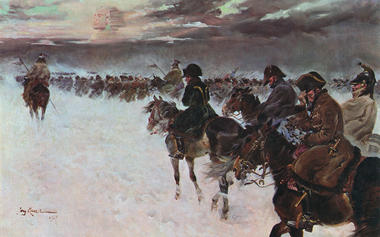
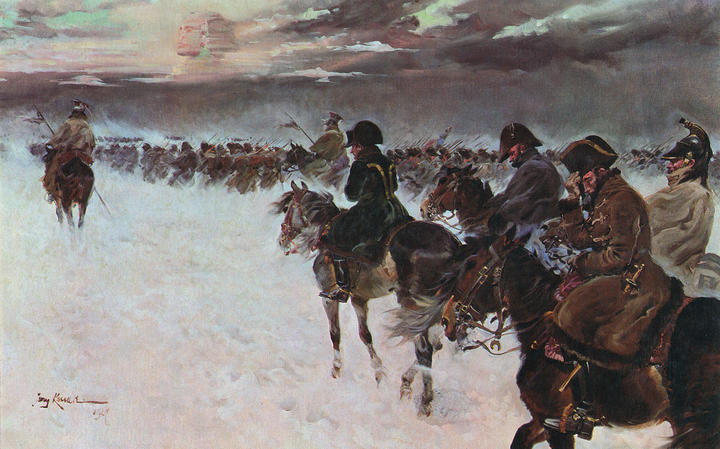
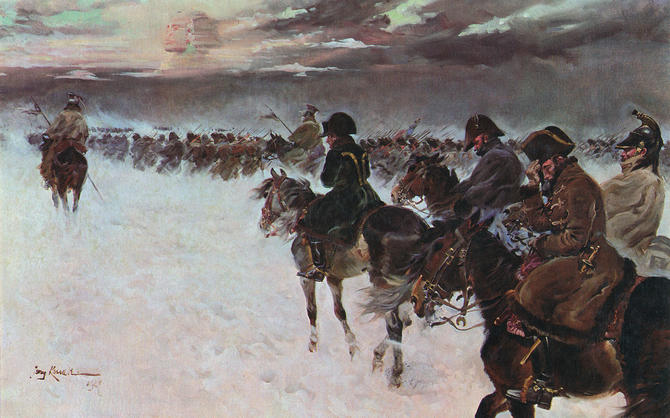
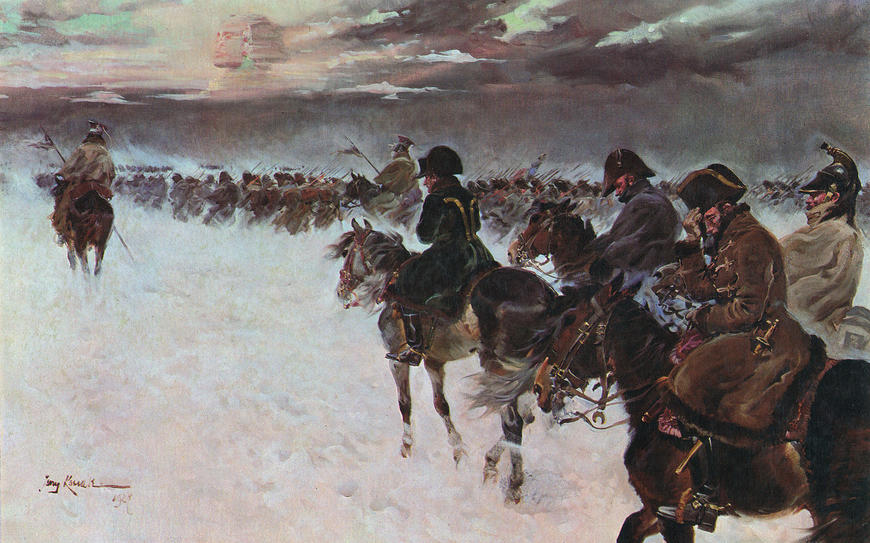
Attached file: Napoleon’s campaign in Russia .docx
Click download to get access to a full version of the paper
The most common point of view of Napoleon's strategic plan with the political aspect of the Russian campaign was "indirect blow" on the positions of England. In March 1810, a secret report was presented to the Emperor by the Minister of Foreign Affairs of France J.B. Champagny, in which Russia was regarded as a natural ally of England. Thus, it follows the conclusion: a war with Russia is inevitable, the only question is when and in what configuration it would begin. In his conversation with the former French ambassador Kolenkur, that took place in St. Petersburg in the summer of 1811, the emperor formulated quite clearly the key strategic task. He told Kolenkur, that in order for the peace it would be possible and sustainable, it was necessary that England would be convinced that it would not find more accomplices on the continent. It was necessary, therefore, that the Russian colossus and its hordes could no longer threaten the south with an invasion (Broers 2014).
Thus, one can make a conclusion, that the concept of war with Russia presumed the presence of two elements: geopolitical and geo-cultural aspects of strategic planning. The essence of them was to inflict a fettering blow to England, by depriving the last continental resource represented by Russia and to prepare the conditions for the implementation of the project for the creation of the "United Europe" around France. However, Napoleon's strategic planning was not limited this way: after the imposition of a fatal blow on the positions of Britain, Napoleon was going to conquer India, which would radically change the geopolitical alignment of forces in the world.
In order to understand the reasons for the failure of Napoleon's campaign in Russia, it is better to remember a little about the war from history.
On June 12, 1812, Napoleon Bonaparte gave the order to his troops to cross the border of Russia on the Niemen River without any declaration of war. It was the largest army of all times, known as Grande Armée, of about 600 000 men from 24 controlled countries gathered to invade Russia. On the Russian side, there were only about 200 000 soldiers to fight occupants. The French Emperor presented this military campaign to the whole Europe as a fight for the revival of Poland, and called his invasion of Russia the "Second Polish War".
His main goal was to win a quick victory that forced Alexander I to the negotiating table. But that was not meant to happen. Napoleon underestimated the Russian people and suffered a crushing defeat as a result.
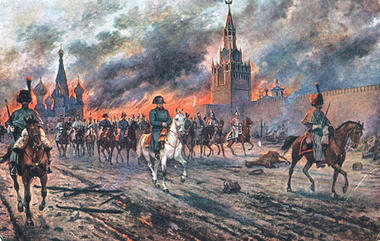
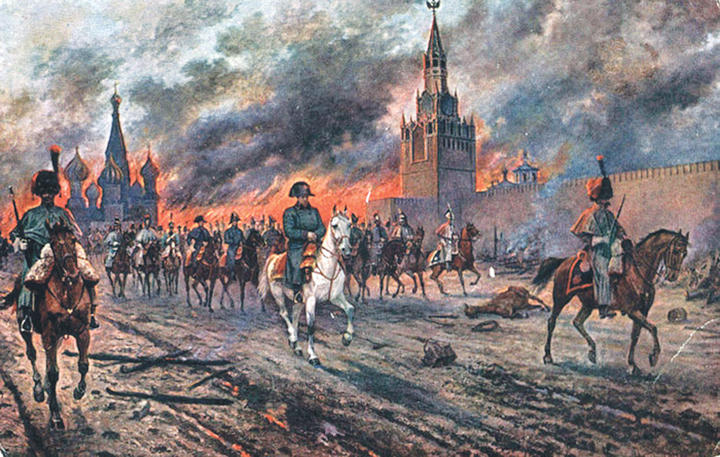
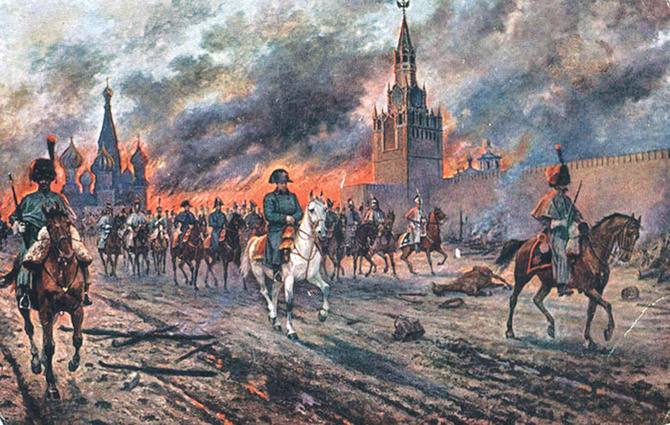
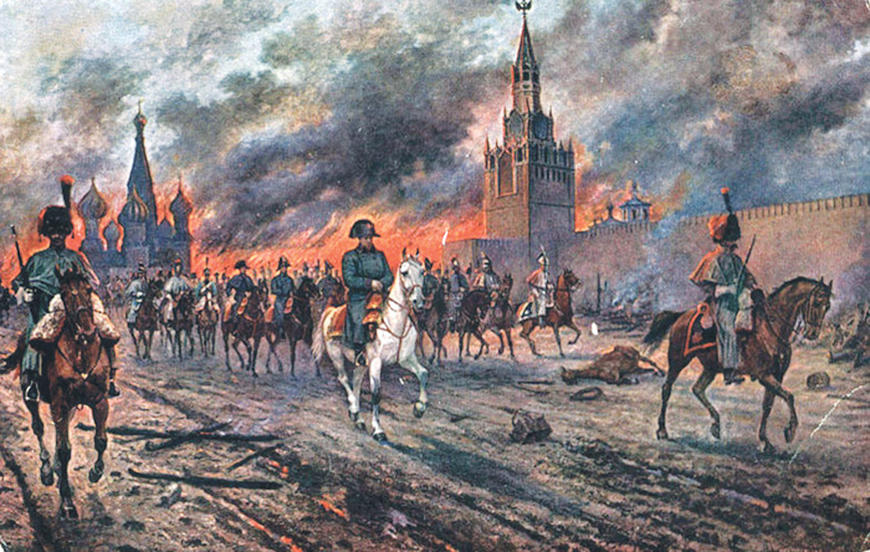
The war of 1812 was preceded by a prolonged diplomatic confrontation between Russia and France and longstanding written communication between the Emperor of France Napoleon and the Emperor of Russia Alexander called in diplomacy - the "War of Feathers". This, indeed, was a duel of two outstanding personalities, two major politicians. And in this duel Emperor Alexander I not only did not lose to Napoleon but in many ways he surpassed him. In spite Napoleon tried to study thoroughly the political and military-economic situation in Russia before the beginning of the Russian campaign, he had not understood the military psychology of Russian society, especially the tactical, operational and strategic features of the activities of Russian military leaders. According to the author opinion, it was one of the main reasons why Napoleon failed.
From the beginning of the war, Napoleon was embarrassed by the behavior of the Russians. He did not expect his campaign to be so hard and unsuccessful. Instead of fighting face to face, the Russians had chosen a different tactic, a partisan one. From June to September 1812 there was the first stage of the war, during which the Russian army retreated from the borders of Russia to Moscow fighting short actions against the Grande Armée, and gave the battle of Borodino near Moscow. It is worth mentioning that the Borodino battle was distinguished by extreme bitterness and bloodshed, the casualties from both sides reached to more than 100 000 people.
It was the capture of Moscow for some reason that Napoleon considered the main aim of the war. Despite the fact that St. Petersburg was the capital of Russia, Napoleon considered Moscow to be the spiritual center of the country. Before the trip to Russia, he said that if he took Kiev, he would take Russia by the feet, if he seized Petersburg, he would take it by the head, but if he enters Moscow, he would hit Russia in the heart. So the main reason why Napoleon chose Moscow as the main aim of his Russian military campaign was that the city positioned itself for many centuries as the Third Rome. Thus, because of the concentration of the French emperor on the conquest of Moscow, some researchers highlight another strategic goal of his military campaign - the removal of Moscow as the main competitor on the way to the crown of the Holy Roman Empire.
Despite the fact that the Russians gave Moscow without a fight, Napoleon was not satisfied when the Grande Armée entered Moscow. The city was turned into the fire, and the emperor of France understood it was just a trap. The second stage of the war started in October 1812 and finished in December 1812. The Napoleonic army first maneuvered, seeking to leave for winter flats in areas undeveloped by war, and then retreated to the borders of Russia, pursued by the Russian army, famine, and frosts.
The reason for his failure Bonaparte saw either in the intervention of spontaneous factors, either in his own mistakes, or in an unfortunate coincidence of circumstances, but not in the actions of Russians who, in his opinion, did everything wrong. In his speech to the Minister of Foreign Affairs, he told that there were an army and soldiers to fight. One should not do more evil from the very beginning that might cause you the enemy if he beat you. Kutuzov's retreat was the height of mediocrity and the Grande Armée was killed by winter. The French emperor thought if he had come from Moscow two weeks earlier, his army would have been in Vitebsk and he would have laughed at the Russians. Justifying his actions Napoleon clearly pointed to the barbarian nature of the enemy, manifested in uncivilized ways of organizing and conducting the war. He sincerely believed to win the war with the non-European country, on its territory, according to European rules and he was not ready for the fact that these rules would be systematically violated. To the author’s mind, that shows that the image of Russia in Napoleon's view was characterized ambivalence, where "civilization" and "barbarism" were two sides of the same coin, combined into something indivisible, when, depending on the situation, he could freely choose to consider Russians as barbarians or representatives of the European civilization.
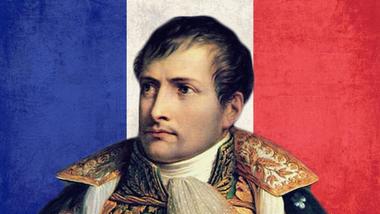
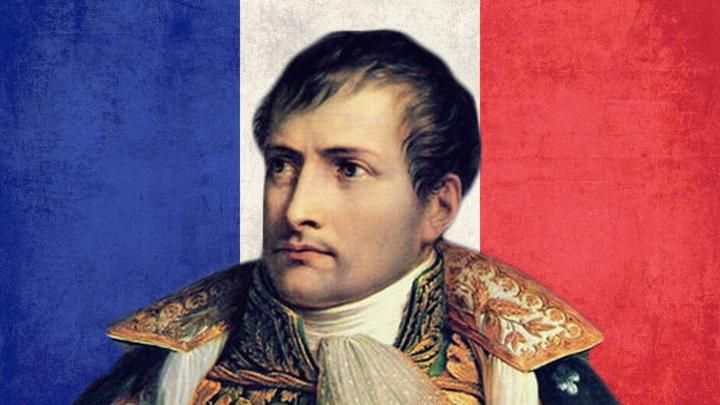
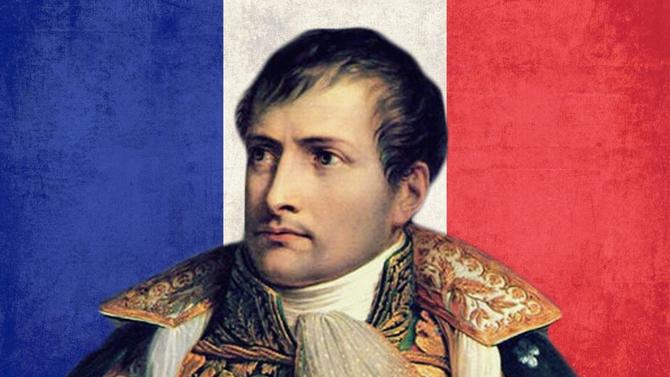
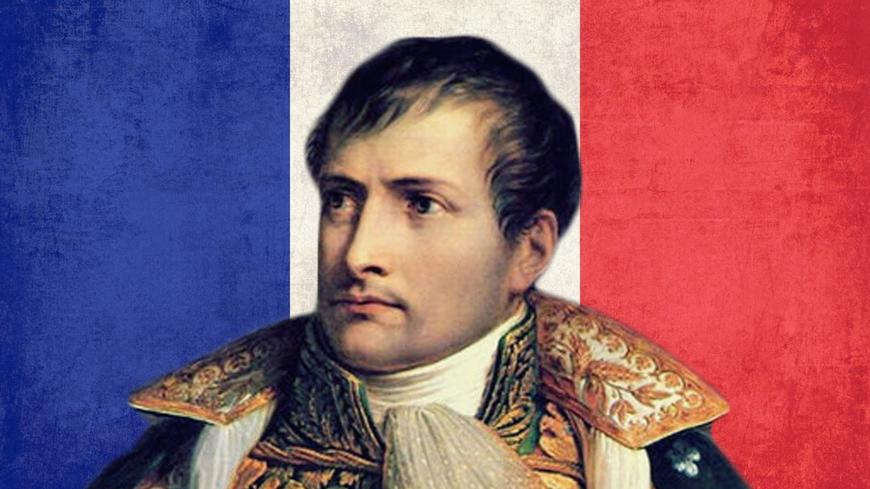
This way, summarizing the above, we can make the following conclusions.
Firstly, Napoleon's campaign to Russia was pursued not only by purely political goals, such as rectification of the border, the signing of a new profitable France union agreement, the return of Russia to the continental blockade against Great Britain, but it was in a sense of a desperate attempt to finally change the geopolitical balance of power in Europe to his own advantage, it was the only way to win in an uncompromising struggle for Europe and made peace with the eternal enemy of France Great Britain.
Secondly, the fate of the Napoleon’s "United Europe", in which there would be no place for Russia, on the Emperor’s mind, depending on the success of the Russian campaign in determining issues.
Thirdly, the victory in the war with Russia opened up a tempting prospect for Napoleon's ambitious plans of conquering India, which was seen as the most valuable and at the same time the most vulnerable part of the British colonial empire.
The failure of the campaign forced Napoleon to begin "searching" for the causes that were quickly found by him in the face of natural elements and barbarism of Russians. In fact, the defeat of the emperor was led by his own strategy, within the framework of which the war with Russia was viewed as an indispensable and necessary means for achieving France's geopolitical goals in the fight against Great Britain and the geo-cultural self-determination of the new, Napoleonic "United Europe ".